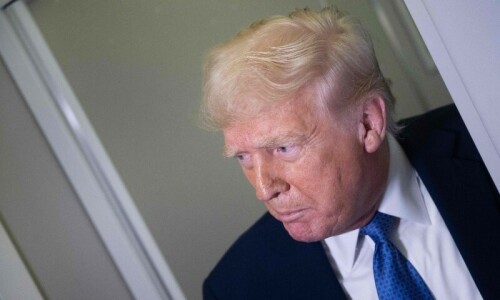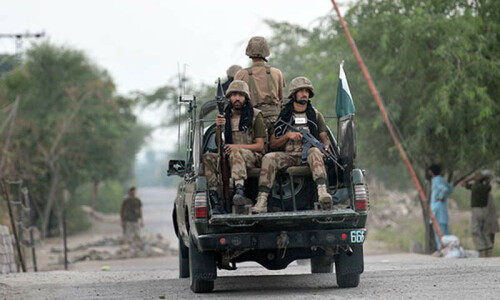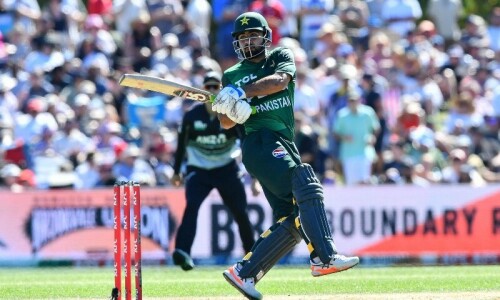TENSIONS between the US and Iran, particularly in the Gulf, are rising and the situation has sent alarm bells ringing throughout the region.
It is in this context that Foreign Minister Shah Mehmood Qureshi said on Tuesday that Pakistan was “closely following the situation” and would take a stand “that best served the national interest”.
Pakistan is, of course, in a sensitive position as it has decades-old, deep relations with the US, while it shares a long border with Iran.
Moreover, this country’s ties with the Gulf Arabs — particularly the Saudis — who are firmly in the American camp, are also cordial and have a strategic and defence dimension.
In case of any hostilities, this country will rightly be concerned about its security and the stability of the region at large.
But perhaps the initial question is: what is the forecast of war? Though crystal-ball gazing can paint a deceptive picture, there is no denying that a war of words and a war of wills are raging in the Gulf between Iran and the US (and its allies).
While leading figures from both sides — Ayatollah Khamenei in Iran and Secretary Pompeo in the US — have said their respective sides are not interested in conflict, actions, particularly on the American end, tend to belie words.
For example, the US military build-up in the Gulf, harsh rhetoric from President Trump, as well as accusations from the US that Iran was responsible for ‘sabotaging’ several oil tankers off the UAE port of Fujairah recently (without presenting any solid evidence) all serve to prove that Washington may indeed be building a case for war against Iran.
Further indications of heightened tensions came on Wednesday, when reports emerged that the US was pulling “non-emergency” employees from Iraq, which borders Iran.
It is welcome that all sides say they do not want war.
But these intentions need to be strengthened through confidence-building measures and a genuine effort to lower tensions.
The US must shed its combative rhetoric and end its economic blockade and engage Iran with respect if it genuinely seeks a modus vivendi.
Tehran, on the other hand, should respond and give negotiations a chance.
As stated above, Pakistan is placed in a unique position.
Perhaps it can use its good offices to mediate between Washington and Tehran, and ward off a potentially catastrophic conflict that has the potential of setting the whole region alight.
Published in Dawn, May 16th, 2019












































